Alpha and beta hydroxy acids are chemical exfoliants which are in many of our cosmetic products… what’s the difference between them, and which one should you use for what?
First off, “alpha hydroxy acid” and “beta hydroxy acid” are proper organic chemistry terms!
“Hydroxy” means an OH group (also known as an alcohol group). “Acid” means a carboxylic acid:
“Alpha” and “beta” describe how far apart the two groups are. If the two groups are one carbon (i.e. one corner in the black section) apart, then they’re alpha to each other, and if the two groups are two carbons apart, then they’re beta.
Here are the structures of some AHAs, with the bit that makes them an AHA coloured purple:
And here are some BHAs, with the BHA part purple1:
You may have noticed that some of the AHAs have a BHA portion in them too, such as citric acid and malic acid – the reason they’re still considered AHAs is that they act more like AHAs, but sometimes (rarely) they’re listed as BHAs. Salicylic acid is the only BHA that’s found commonly in skincare and cosmetic products, and when most articles are discussing BHAs, they specifically mean salicylic acid.
What’s the difference?
The main difference between the AHAs and BHAs shown above, practically speaking, is that AHAs dissolve in water, and BHAs dissolve in oils. As you can see from the structures, AHAs have a lot of Os on them for their size, which makes them more polar, and as you might remember from this post, polar things dissolve well in water and non-polar things dissolve well in oil.
The stratum corneum is the protective layer on the surface of the skin, made mainly of dead skin cells and keratin – although it’s necessary because it protects the skin, if it’s too thick, it can look dull and uneven. Both AHAs and BHAs can penetrate the skin surface and detach more dead skin cells from the stratum corneum than physical exfoliants such as scrubbing beads. They can improve the appearance of skin that’s dull or hyperpigmented due to sun damage or other skin build-up, resurface dry skin, and even reduce the appearance of wrinkles and smooth the skin. AHAs and BHAs can also stimulate cell renewal, but it’s currently unclear why. This can lead to plumper skin with better texture.
The best AHAs for penetration are glycolic and lactic acid – because they’re small, they are better at penetrating the skin surface. Because of all the Os on the structures, AHAs are also humectants and can help moisturise the skin (see this moisturiser blog post for more about humectants and other moisturising goodness!). However, because it’s oil soluble, salicylic acid can also penetrate into pores which are clogged with oily cells and sebum.
So if your skin is on the dry side, AHAs might be more appropriate, but if you have problems with clogged pores, BHA would be your best bet!
Despite all their benefits, AHAs and BHAs can have unpleasant side effects too, such as making skin more sensitive to light after treatment, irritation and burning.
References
B A Green, R J Yu and E J Van Scott, Clinical and cosmeceutical uses of hydroxyacids. Clin Dermatol 2009, 27, 495.
D Saint-Léger, J-L Lévêque and M Verschoore, The use of hydroxy acids on the skin: characteristics of C8-lipohydroxy acid. J Cosmet Dermatol 2007, 6, 59.
1 Because the middle carbons in salicylic acid and C8-liphydroxy acid are on an aromatic ring, it wouldn’t technically be called a beta hydroxy acid (aromatic rings have special properties); however, in cosmetics and skincare, salicylic acid is commonly considered the only BHA.
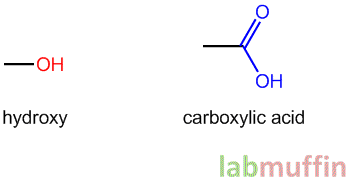
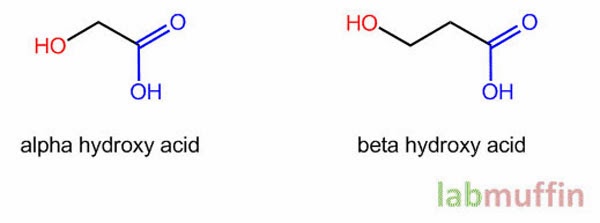
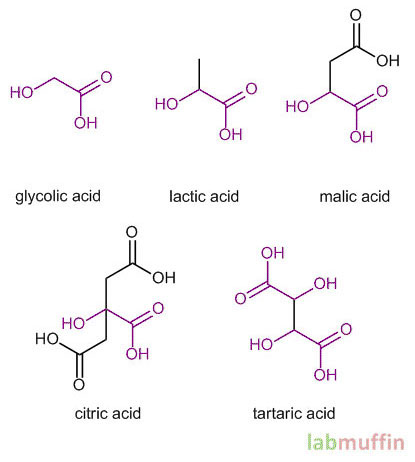
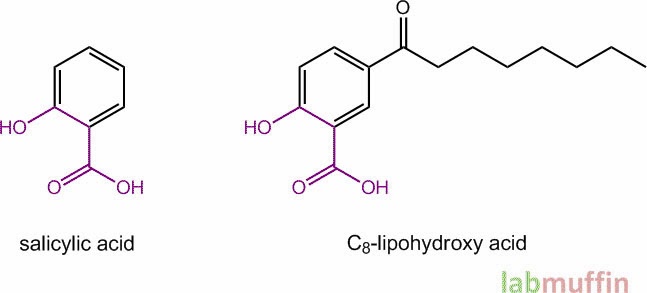


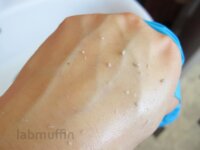



well written and informative! i love your science posts (and that is a huge compliment since o-chem gives me nightmares 😛 )
Haha thanks! 🙂
This could be why BHAs seem to work better on me. I’m like oil that took human form. 😛
Haha! 😀 I like salicylic acid products too, they seem to be cheaper anyway!
I agree, very well written and informative. AHA’s destroyed my skin in the face, now I only can use very fat creams free of any of harmful substances.
I’m SO going to put your blog on my blog list, so that I’m sure not to miss one single post from you in the future 🙂
🙁 Sorry to hear that! Acids are amazing products, but it’s dangerous if you use too much!
I’m really happy to hear that you like my blog 🙂
Right now, I actually am a bit uncertain, but the way it was described to me sounded like AHA’s. It was Elisabeth Arden, some extremely expensive capsules, it was more than 10 years ago, they look like the Ceramide capsules, might have been them…
Very interesting, thank you for this.
Glad you like 🙂
Interesting!
I have a blog award for you =)
http://www.kellyskolors.com/2012/02/2-blog-awards.html
Thanks! 🙂
It sounds like if you use AHAs, you should do after you cleanse your skin of oils, and with BHAs, it’s better to have a little oil left on the skin.
So very scientific but LOVE reading and learning the differences between AHAs and BHAs!
your fine as fuck
Thank you for this!
very interesting, thanks 🙂
Omg, I don’t believe I only found your site just now… How on earth did I miss this!! Great explanation on AHAs/BHAs!! As someone who is skeptical by nature, I finally understand how they work!! Thank you for such explanations! And the different molecule comparisons were very handy! Great work!!
Thank you so much! 🙂
Hi Michelle,
May I ask which Glycolic acid product do you use?
Hi! I’m currently using Neostrata Gel Plus and Elucent Anti-Ageing Serum. I’ve used Paula’s Choice 8% AHA in the past and really liked that as well!
Thank you, can I ask do you see any adverse effects with long term usage of AHA? I am thinking of using the 8% Paula AHA everyday once in the morning.
Also, may I ask how long have you been using AHA and how often?
This would be very helpful 🙂
Thank you Michelle
Hi Michelle,
Can you tell me what temperatures are most indicated for BHAs?
I have recently bought one from Paula’s Choice(BHA9) and I have really high temperatures in my apartment (28 degrees Celsius) in the summer. Is the fridge an option?
Thanks,
Madalina.
BHA is very stable, so it should be OK 🙂
Hi! ?
I have combination skin (dry in cheeks, oily in T-zone, have whiteheads and blackheads on nose) so which acid will be best for my combination skin? AHA or BHA?
Thank you!
Love your posts! you are one of the few influencers I trust regarding accurate scietific content <3 please never stop
As a student I almost failed organic chemistry , I wish that I have stumbled upon your lovely blog earlier .
Although I am suffering of organic chemistry PTSD.
Thank you.